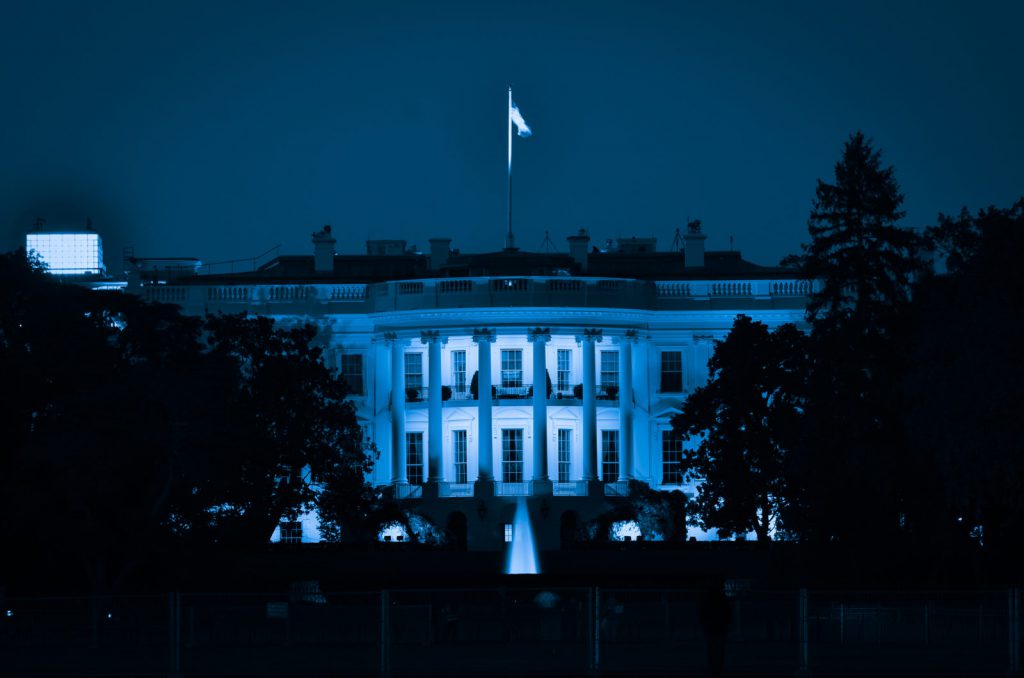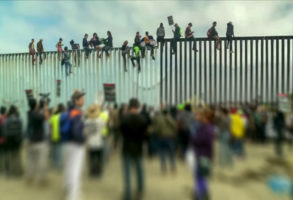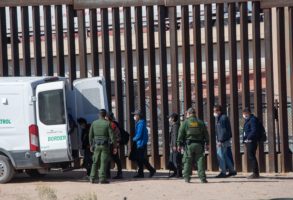
Published January 10, 2019
Much of the talk around President Trump’s apparent preparations to use emergency powers to fund some border-wall construction has revolved around his technical legal authority to do so. The claim that he has such authority is not totally ridiculous — it is not as ridiculous, for instance, as the arguments employed to support President Obama’s DACA program. But it is also not ultimately persuasive, for reasons David French, among others, has ably laid out.
But even if that claim were stronger, the constitutionality of this kind of deployment of resources would still not be settled. Constitutionalism is not just another level of legalism. For legislators and for citizens, as opposed to judges, constitutional questions are not just technical legal questions. The Constitution creates an arrangement of institutions and powers, and the forms of that arrangement can be plainly violated even if the letter of the law is not.
In November of 2014, the day after Barack Obama announced his DAPA program — the effective amnesty for people here illegally who are parents of American citizens or permanent residents, which followed in the wake of DACA — I argued around here that while the formal legality of the move was only highly dubious, it was without question a violation of the constitutional order. I think the same would be true of what the president at this point appears to be contemplating, and for similar reasons. I wrote then:
If the Constitution is merely a technical legal document, it might (perhaps) be possible to defend this action as somehow within the bounds of the president’s enforcement discretion. But because the constitution creates a political order — a structure for the political life of an actual society — it is very difficult to sustain such a defense in the real world. That combination of factors means that a judge might well sustain the president’s action as minimally defensible if it was challenged in court but the Congress cannot consider it so. And both would be playing their proper constitutional roles.
That is the kind of situation we are looking at here as well. The University of Virginia’s James Ceaser has outlined this distinction between legalist and political constitutionalism more clearly than anyone. He has written:
The first sense—legalistic constitutionalism—understands the Constitution as a set of rules that can decide policies or cases; these rules are of a sort that can offer definitive answers and that could be employed and enforced by courts. The second sense—political constitutionalism—understands the Constitution as a document that fixes certain ends of government activity, delineates a structure and arrangement of powers, and encourages a certain tone to the operation of the institutions. By this understanding, it falls mostly to political actors making political decisions to protect and promote constitutional goals.
A judge would need to look at the claims of statutory authorities that President Trump’s Department of Justice would presumably make if he declares a state of emergency and spends unappropriated funds to build a wall. But the rest of us would have to look at the political situation, which presents a fairly straightforward set of facts: The president has asked Congress to appropriate $5 billion for his administration to build a border wall, the Congress has considered his request and declined to appropriate the money, and the president now says he will spend the money anyway. That is not within his power. There are imaginable exigencies in which such overreach might be tolerated for a time given an absolutely compelling, urgent national need. But it is perfectly plain to see that no need of that extreme sort exists here. The president just wants public funds for a project Congress has declined to fund, and spending money on that project anyway is not one of the options he has in our system of government.
I think a border wall could do some good, though it certainly isn’t the most effective possible way to bring illegal immigration under greater control. And I think opposition to the wall has gotten completely out of hand and ridiculous. But there are lots of things I think Congress should do that it has not chosen to do. That’s too bad. I wouldn’t want the president to just do them anyway.
We do not need to tie ourselves in knots around the fine legalities to see that taking the kind of action President Trump has said he is considering would violate the structure of our Constitution. It could be that a federal judge would not have to throw it out. But Congress and the public should deem it a constitutional violation and look for ways to prevent or reverse it. For members of Congress in particular to fail to do so, let alone to encourage the president to go around Congress and spend money that has not been appropriated, is a dereliction of Congress’s duty. It is unfortunately the latest of many.
— Yuval Levin is the editor of National Affairs and a fellow at the Ethics and Public Policy Center.




